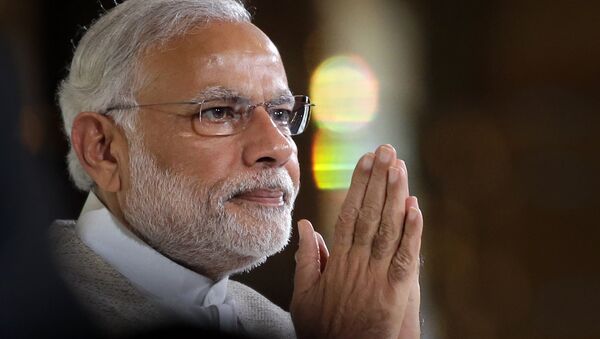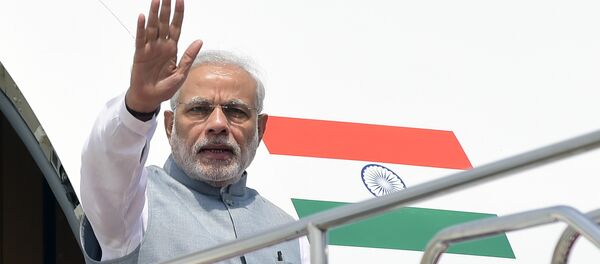NEW DELHI (Sputnik) — Next week’s summit meeting between Japanese Prime Minister Shinzo Abe and Indian Prime Minister Narendra may see breakthroughs that have been eluding Indo-Japanese ties for a long time.
According to signal emanating after a meeting between the National Security Advisors of both countries, India and Japan are on the verge of signing a civil nuclear deal. They could also seal a pact on Japan exporting dual civil-military use aircraft. Both deals have been under discussion since the time of Manmohan Singh as Indian Prime Minister.
The second highpoint of the Modi visit may be an agreement on 12 amphibious planes that have both civil and military configurations. Till recently, Japan was unyielding on price as well as transfer of technology. Reports from Tokyo suggest that the loss of the Australian submarine order may have force a rethink on the earlier rigid positions.
Partnership plans
India and Japan may also firm up plans for greater maritime cooperation. The idea was first mooted by Shinzo Abe during his speech to the Indian Parliament in August 2007., Back then, Abe had evoked a vision of “confluence of the two seas”, a “strategic global partnership” dedicated to nurturing an “open and transparent” maritime zone linking the Pacific and Indian Oceans as part of a “broader Asia.”
Abe has heavily invested in ties with India and the context for heightened cooperation, according to pro-West analysts, comes from the wariness of both New Delhi and Tokyo over growing Chinese influence in Africa. India is developing its own radar stations in the Seychelles, Madagascar, and Mauritius. Japan has pledged $30 billion in public and private support for African development over the next three years.
Both sides may consider pooling in their area of strengths to give greater bang to their efforts in Africa. India is respected for capacity building while Japan has the ability to liberally open its purse strings.




